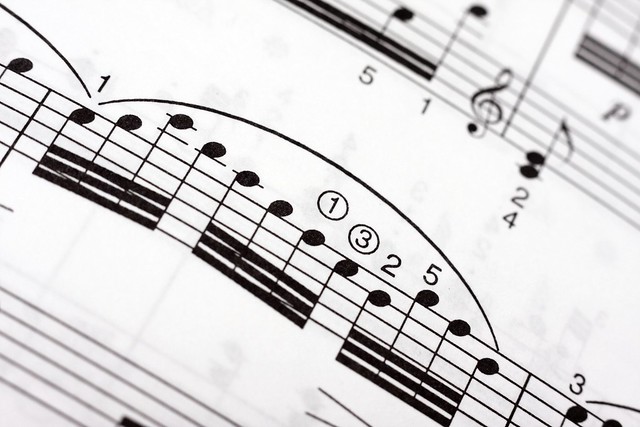Researchers from Tulane University in New Orleans, US, have found that mice can ‘sing’ like a choir by matching the pitch of their voice to that of others.
The experiment shows that when two male mice of different types are housed together, they slowly began to match the pitch of their songs to each other. The finding contradicts a long-held assumption that mice cannot learn to adapt their voices – a trait thought to be common only to humans, bats and a handful of bird and large mammal species. Although it was previously known that mice make an ultrasonic noise referred to as a “song” to attract mates, it had never been demonstrated that they were capable of changing pitch. The Telegraph, TASS, Source: Voice of Russi...
Now, a musical app that listens to your heart during exercise

Researchers have designed a new "Musical Heart" that enables your smartphone to select music to get your heart pumping during workout. The biofeedback-based system developed by a University of Virginia graduate researcher helps smartphones select music that will help get their owners' heart pumping during exercise and slow it down when they want to cool down or relax. "Whether I am driving, jogging, travelling or relaxing – I never find the appropriate music to listen to," said Shahriar Nirjon, a doctoral student in computer science in the School of Engineering and Applied Science. "I believe there are many like me. The problem is: The heart wants to hear something, but our music player does not understand the need. My joy was in connecting them together - in a non-invasive and cost-effective way," Nirjon said. Called "Musical Heart", the system "brings together wellness and entertainment," Nirjon said in a statement. Musical Heart works by merging a microphone that detects the pulse in arteries in the ear with earphones that bring in music from a playlist on a smartphone. An app selects tunes that optimise the heart rate of an individual user based on a given activity, whether running, walking or relaxing - playing fast-paced music for hard workouts, and slowing the beat for cool-downs. An...
Music lessons boost brain, slow aging

By Kerry Ludlam, Woodruff Health Sciences Center It turns out mom was right. Music lessons are good for you, and those benefits may last a lifetime. A recent study conducted by Brenda Hanna-Pladdy, a clinical neuropsychologist in Emory's School of Medicine, offers additional evidence that musical instrumental training, when compared to other activities, may reduce the effects of memory decline and cognitive aging. This is the second study published by Hanna-Pladdy, which confirms and refines findings from an original study published in Neuropsychology in 2011 that revealed that musicians with at least 10 years of instrumental musical training remained cognitively sharp in advanced age. The new findings were published in the July issue of Frontiers in Human Neuroscience. “The study confirms that musical activity preserves cognition as we age, by comparing variability in cognitive outcomes of older adults active in musical instrumental and other leisure activities,” says Hanna-Pladdy. “A range of cognitive benefits, including memory, was sustained for musicians between the ages of 60-80 if they played for at least 10 years throughout their life, confirming that maintenance of advantages is not reliant on continued activity. In other words, you don’t use it or lose it. Nonetheless, the study highlighted the...
Subscribe to:
Posts (Atom)
